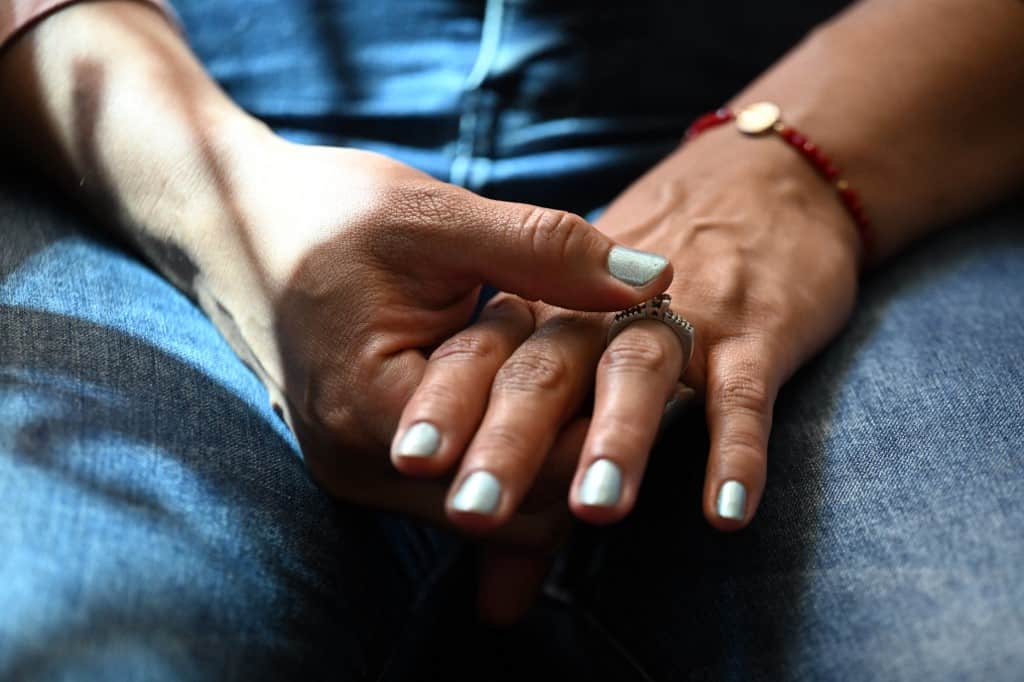President Nayib Bukele’s “war” against gangs reduced murders to historic lows in one of the most violent countries in the world not undergoing civil conflict, but among 75,000 detainees, there are some 7,000 released…innocents.
Amnesty International and the Victims of the Regime Movement (Movir) denounce “arbitrary detentions” under the accusation of belonging to “illicit groups” (gangs), “abuses”, “tortures” and “deaths” in prison, under a state of exception regime in place since March 2022.
Sandra, Maricela, Josefina and Irma revealed this dark side of Bukele’s crackdown, who proclaimed himself reelected in last Sunday’s elections based on his popular but controversial security policy.
Innocent people are dying
A dusty road leads to the wooden house of Sandra Hernández in El Rosario, 50 km from San Salvador. It has no electricity or water. She lives there with her 17- and 13-year-old son and daughter.
In the patio, in the shade of a tree, Hernández recounts that her husband, José Medrano, was arrested by police on May 26, 2022 and never returned.
“They accused him of illicit gang involvement. He had no tattoos, he was a day laborer,” said this 36-year-old woman, of fragile appearance but courageous.
While in prison he became ill with renal failure. The last time she saw him was on a clandestine video call when he was taken to the hospital for hemodialysis.
On March 26, 2023 they announced he had died. “At the funeral home they told me that his body had bruises. We suspect he did not die from kidney failure,” Hernández said.
Her family survives with the help of a brother and what her 17-year-old son earns as a bricklayer. “They are taking hardworking, humble people; innocent people are dying, not the gang members,” she lamented.
You live in fear
Maricela Méndez was asleep when police took her out of her home in Alta Vista, northeast of San Salvador, on July 19, 2022. Her children, then 11 and 7, stayed with their grandmother. “They accused me of being a criminal, the officer had a quota to make five arrests,” she said.
Her partner left her when she was imprisoned. A month after being in jail, she found out she had arrived pregnant. “I have to be strong (…), my children depend on me,” she thought.
She was in three different prisons. “They punished us. I slept on the floor, ate tortillas and drank sugary water to quell my hunger,” she recounted. After legal efforts, she obtained conditional release.
“It was five months but it was traumatic because of everything I had to live through while pregnant. I had a threatened miscarriage,” she says as she looks at her 11-month-old baby, whom she gave birth to two months after being released.
Méndez, 35, supports her children by working in a beauty salon. “My children are traumatized, when they see police they cry, fearful that they will take me away again. I feel that fear too. You live in fear,” she confessed.
Kids without parents
With swollen eyes from lack of sleep, next to the crib where her 2 and 3 1/2-year-old grandchildren sleep, Josefina Bonilla wipes away tears: “I don’t know anything about her.”
Her 24-year-old daughter Stefany Santos was arrested on June 2, 2022. Bonilla suspects it was due to problems with relatives of her children’s father, but they accused her of illicit gang involvement.
“She is innocent. They take people away and do not investigate,” said the 63-year-old woman in her modest home in Soyapango (east of San Salvador), showing a photo where she is posing with a smiling Stefany.
Unable to work because she has to take care of the little ones, she gets by with food aid that a neighbor occasionally provides. “It’s quite hard. Only God knows how I’m managing,” she expressed. Stefany has had a difficult life. She was abused by her partner, who according to Bonilla was killed over a debt.
“She has asthma and psychological problems. I’m worried she doesn’t have medication,” she said, lamenting that in a year and a half she has only been able to bring three packages of food and clothing to the prison.
With Bukele’s policy “the innocent are paying for the guilty.” “We are left mothers without daughters and children without fathers,” she summed up.
They took their future away
In the room where she lives in Mejicanos, north of San Salvador, 42-year-old Irma García speaks without fear so as not to feel powerless.
“He’s been kidnapped. Since they took him away I haven’t been able to see him or talk to him. I don’t know if he’s alive,” she said as she shows the photo of the young man in a blue helmet and orange shirt. Isaías Galicia was about to turn 18 when he was arrested on June 7, 2022 at the mechanic shop where he worked.
“My son is not a gang member, he has no tattoos, he didn’t harm anyone,” says this sad-eyed woman, who claims the origin of the arrest was an anonymous call.
García was widowed years ago, works cleaning apartments and has three other children ages 13, 15 and 21. After the arrest, the stigmatized family was evicted from the boarding house where they lived.
“I live worried that they’ll notify me they killed him inside. They should have arrested gang members. But they’ve taken innocent young people, taken away their dreams, their future…like my son,” she lamented, in the gloom of her home.






